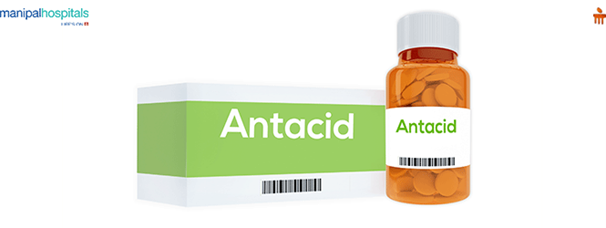A nurse is providing teaching to a client who has a gastric ulcer and a new prescription for ranitidine.
Which of the following statements by the client indicates an understanding of the teaching?
"I can take two aspirin to treat headaches.”
"I should not take an antacid within 1 hour of taking this medication.”
"l can expect fine hand tremors when taking this medication.”
"I should avoid dairy products when taking this medication.”
The Correct Answer is B
Ranitidine is a histamine H2-receptor antagonist that blocks histamine-mediated gastric acid secretion.

Antacids can interfere with the absorption of ranitidine, so it is important to separate their administration by at least 1 hour.
Choice A is wrong because aspirin is a type of nonsteroidal anti-inflammatory drug (NSAID) which can increase the risk of peptic ulcers.
Choice C is wrong because fine hand tremors are not a known side effect of ranitidine.
Choice D is wrong because there is no need to avoid dairy products when taking ranitidine.
Nursing Test Bank
Naxlex Comprehensive Predictor Exams
Related Questions
Correct Answer is A
Explanation
Albuterol can cause a rapid heart rate (tachycardia).
It is one of the more serious side effects of albuterol.
Choice B is wrong because Fever, is not an answer because it is not mentioned as an adverse effect of albuterol in the search results.
Choice C is wrong because Constipation, is not an answer because it is not mentioned as an adverse effect of albuterol in the search results.
Choice D is wrong because Drowsiness, is not an answer because it is not mentioned as an adverse effect of albuterol in the search results.
Correct Answer is A
Explanation
The nurse should administer the medication over 2 hr because amphotericin B lipid complex should be infused slowly intravenously.
Choice B is wrong because priming the tubing with 0.9% sodium chloride is not mentioned as a necessary action when administering amphotericin B lipid complex via intermittent IV bolus.
Choice C is wrong because discarding the medication if it is yellow is not mentioned as a necessary action when administering amphotericin B lipid complex via intermittent IV bolus.
Choice D is wrong because a gravity flow set is not mentioned as a necessary action when administering amphotericin B lipid complex via intermittent IV bolus.
Whether you are a student looking to ace your exams or a practicing nurse seeking to enhance your expertise , our nursing education contents will empower you with the confidence and competence to make a difference in the lives of patients and become a respected leader in the healthcare field.
Visit Naxlex, invest in your future and unlock endless possibilities with our unparalleled nursing education contents today
Report Wrong Answer on the Current Question
Do you disagree with the answer? If yes, what is your expected answer? Explain.
Kindly be descriptive with the issue you are facing.
